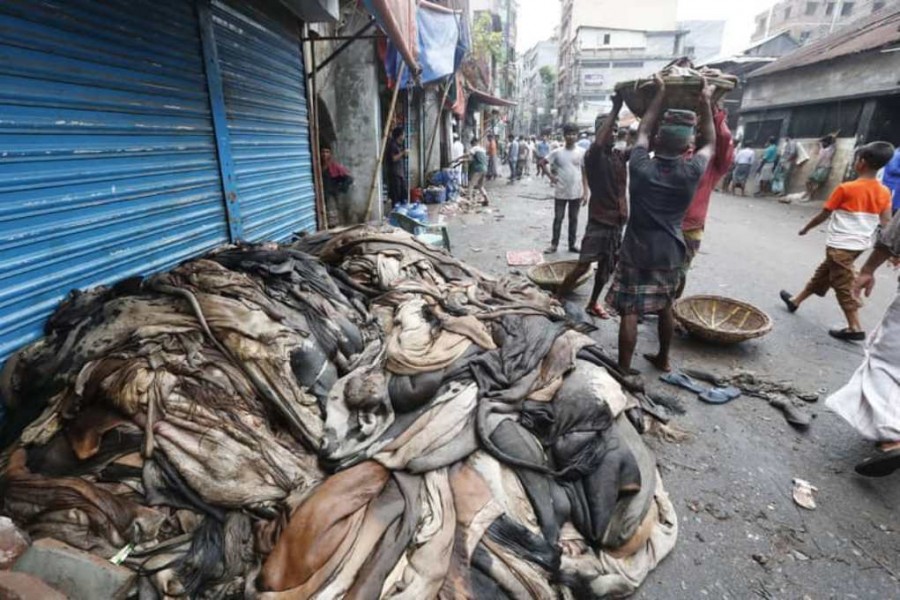
Published :
Updated :

Prices of raw hides and skins this year have remained the same as that of the last year. The government in consultation with the relevant tanners and leather associations had set the prices ahead of Eid-ul-Azha which observers say are not at all in conformity with the high price of sacrificial animals on the one hand and on the other, with international prices of raw hides and skins. However, despite low prices, traders in most parts of the country are reportedly finding it extremely difficult to sell their stocks to the wholesale buyers (aratdars) who eventually sell these to the tanneries for onward processing. While the traders are blaming the aratdars for not offering even the bare minimum price, the latter are expressing frustration as the tannery owners are not allegedly offering the prices set by the government. The tanners, on the other hand, argue that in the wake of continuing slump in international prices of leather products and stocks already available with them from last year's collection, they are not prepared to risk purchases at even very low prices. Observers find the scenario ominous for the country's leather business. They fear that in the absence of proper preservation, the raw stuff now lying with the traders unsold may rot and get wasted. At the same time, there is the looming threat of large-scale smuggling to India. If the hides are not disposed of locally well within time, smuggling becomes the only probable outlet.
It has been gathered that the issue of low prices of leather and leather goods in international markets has been the key deterrent to raising prices of raw hide this year. In fact, this was instrumental in setting prices of raw hides and skins in the past years too. The government in consultation with the relevant associations had set prices of cowhide at Tk 45-50 a square foot in Dhaka and Tk 35-40 a square foot for outside Dhaka.
According to the Department of Livestock Services, around 50 per cent of the annual demand for hides and skins in the country is met during the Eid-ul-Azha. Reports say, so far, collection of raw hides and skins this year has not picked up because of the aforementioned reasons. There are quarters which suspect that low prices may prompt many aratdars, especially those in the northern districts, to stockpile raw hides.
What is worrying at this stage is that the prevailing situation may open up floodgates for smuggling. Informed sources say every year business people from across the border pay substantial amounts in advance to local collectors prior to the Eid to make sure that the cross-border operation succeeds. The government appears to be concerned about the state of things, and has reportedly strengthened its vigil on the movement of raw hides and skins towards the border belt. At a high-level meeting in the capital, relevant law enforcement agencies were instructed to this effect. In fact, instruction is a routine affair, but this year it should more than what routine demands.


 For all latest news, follow The Financial Express Google News channel.
For all latest news, follow The Financial Express Google News channel.